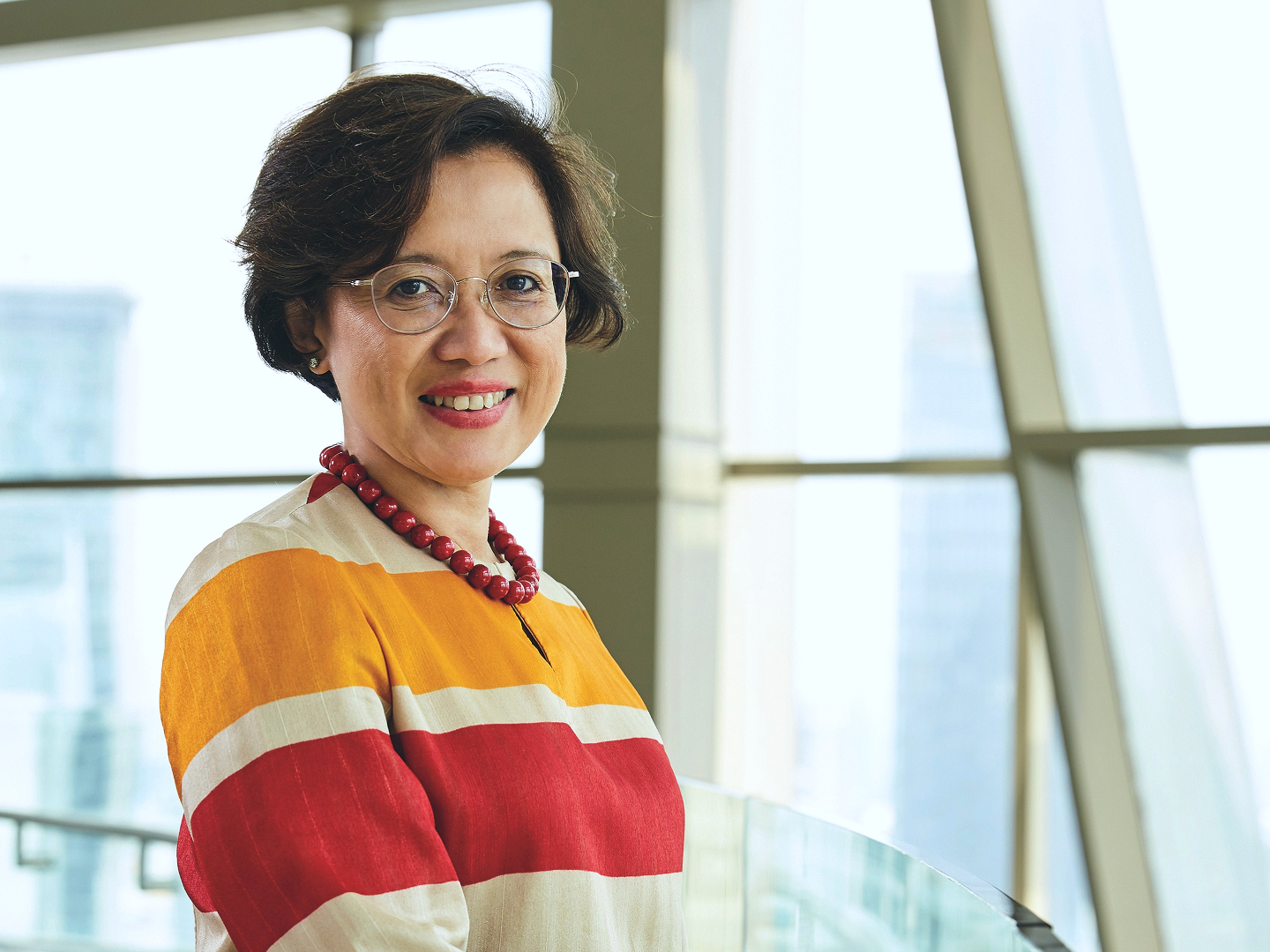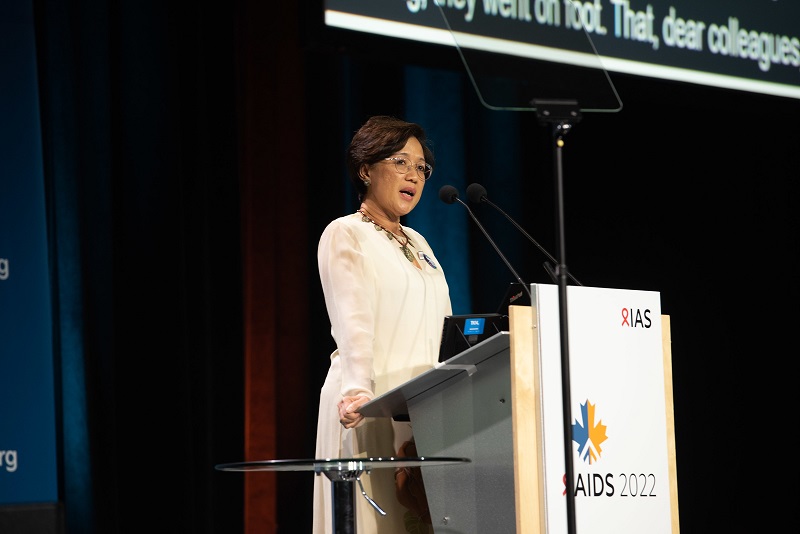
She shares her plans and projects after stepping down as International Aids Society president (Photo: SooPhye)
When Options first interviewed Prof Datuk Adeeba Kamaruzzaman in 2019, she was preparing to take on the presidency of the International Aids Society, the world’s largest association of HIV/AIDS professionals with 11,600 members from over 170 countries. She is the first person from Asia to take on this role, following in the footsteps of giants such as Nobel Prize winner Françoise Barré-Sinoussi, who is credited with discovering the virus; Helen Gayle, who served as chair of the Obama administration’s advisory council on HIV/AIDS; and Linda-Gail Bekker, president and CEO of the Desmond Tutu HIV Foundation.
“I feel like I drew the short straw, being president during the pandemic,” she quips. “It was very challenging on many fronts, not least of which was my own time as I was dealing with the Covid-19 situation here in Malaysia. But I’m proud to say I managed to steer the organisation through these challenging times, working virtually with the team in Geneva. We managed to run all the scheduled programmes we planned, culminating in a huge conference in Montreal recently, which also marked the end of my presidency.”
Known worldwide for her work in HIV/AIDS research, one of Adeeba’s most critical accomplishments is the establishment of the Infectious Diseases Unit and Centre of Excellence for Research in AIDS at Universiti Malaya, one of the few centres in the region that is dedicated to HIV/AIDS research. CERiA runs activities that encompass clinical and basic science studies, and epidemiological as well as socio-behavioural research focusing on marginalised communities in Malaysia. It has managed to attract many local and international research grants, including from the Ministry of Higher Education, the National Institutes of Health, US, the Foundation for AIDS Research (amfAR) and the World Bank.
adeeba_aids_2022.jpg

Her advocacy work has led to a 50% reduction in the rate of new HIV/AIDS infections in the past decade through a combination of opioid substitution therapy and a needle syringe exchange programme. She also reformed existing drug policies and successfully advocated for a public health approach that decriminalises drug users, as well as harm-reduction programmes that protect the life, health and dignity of people with drug addiction and their communities while preventing HIV transmission among drug users.
Although in the last decade we have continually managed to reduce the rate of new infections, the Covid-19 pandemic has dealt a huge blow to this progress — both locally and on a global level. “Unsurprisingly, reports show that the amazing strides we had made to reduce infections globally has slowed down and we won’t be able to reach the target we set ourselves to end HIV/AIDS by 2030. Our target for 2021 was only 500,000 new infections, but unfortunately, we reached 1.5 million,” she says. “In Malaysia, the new infection rate is about 3,500 new cases per year, against the background of a good 10-year period of reducing infections. Several factors caused the numbers to go up — lockdowns meant people couldn’t get tested and treated, but there are many other aspects to this.”
Now that her presidency of the International Aids Society has ended, Adeeba plans to throw herself into some projects that were neglected during the pandemic. “For HIV, I plan to focus on the prison project we have going, and I will be assisting my colleagues on increasing self-testing and the distribution of PrEP (pre-exposure prophylaxis). Outside of that, I will be working on vaccine hesitancy, some research on long Covid-19, and through the ROSE programme, women with cancer and HIV as well.”
Receiving the Merdeka accolade is a bright spark indeed in what has been a difficult year. “We’ve all felt so burnt out and I think this award will rejuvenate me and make me work harder to achieve my goals.”
Professor Datuk Adeeba Kamaruzzaman is one of six recipients of the Merdeka Award this year.
This article first appeared on Aug 29, 2022 in The Edge Malaysia.


